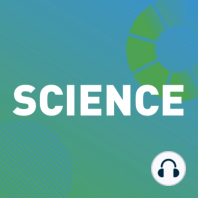56 min listen

156. Paige Harden: Why DNA Matters for Social Equality
156. Paige Harden: Why DNA Matters for Social Equality
ratings:
Length:
61 minutes
Released:
Dec 14, 2021
Format:
Podcast episode
Description
All human beings are 99.9 percent identical in their genetic makeup. All our differences are found in the remaining .1 percent. Our DNA makes us different in our personalities and in our health, and both matter when it comes to educational and economic success in our current society. In The Genetic Lottery, clinical psychology professor Paige Harden aimed to reclaim genetic science from the legacy of eugenics and dismantle dangerous ideas about racial superiority. She argued that we must acknowledge the role of genetic luck if we are ever to create a fair society. Genetically associated inequalities, Harden brought forth, can be viewed through a lens of “luck egalitarianism.” This philosophical perspective on fair versus unfair inequality is already manifest in current research and policy. She proposed that genetic research can be used to advance equity goals. Regardless of the .1 percent, we can all be equal. Paige Harden, Ph.D. is a professor of clinical psychology at the University of Texas at Austin, where she is the director of the Developmental Behavior Genetics lab and co-directs the Texas Twin Project. Buy the Book: The Genetic Lottery: Why DNA Matters for Social Equality (Hardcover) from Third Place Books Presented by Town Hall Seattle. To become a member or make a donation click here.
Released:
Dec 14, 2021
Format:
Podcast episode
Titles in the series (100)
136. John Feffer: Is a Better World Possible After COVID?: Many believe that COVID-19 has exposed everything that’s wrong with decades of the world’s governments betting on militarism, competition, and wealth creation. But is a better world really possible after this crisis? Author John Feffer... by Town Hall Seattle Science Series